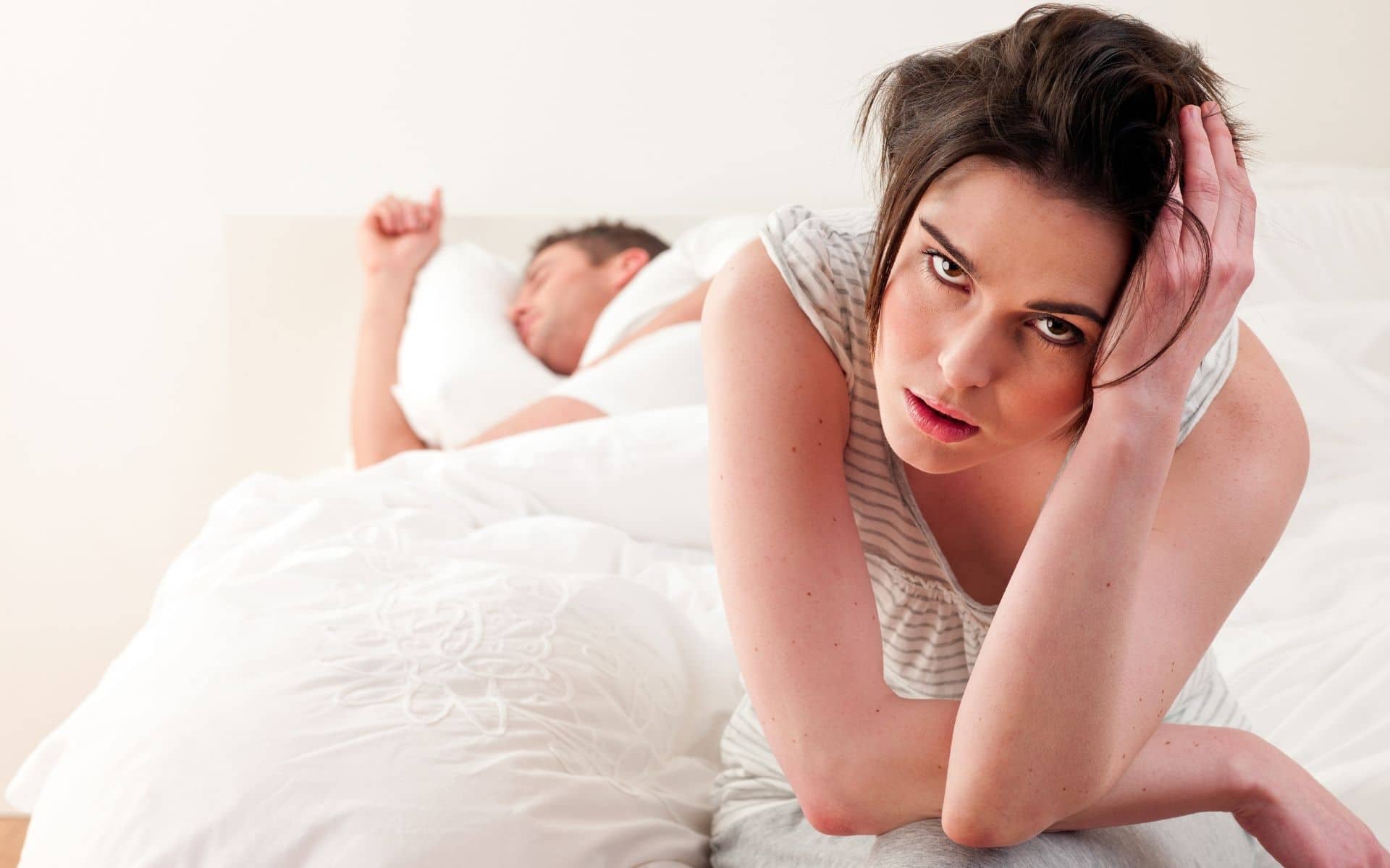I always joked that my husband’s ‘superpower’ was his ability to fall asleep in 5 minutes. I didn’t realize that it was my undiagnosed adult ADHD keeping me awake.
Is ADHD Really a Sleep Disorder in Disguise?
It turns out every sleep issue is more common in people with ADHD. And we are talking really common, up to 75% of people with ADHD have sleep issues. One ADHD specialist said she is shocked if a patient doesn’t describe some sort of sleeping issue.
It makes total sense, because a recent study showed that the specific differences in the ADHD brain are also linked to the regulation of sleep. Basically, insomnia should be considered a core symptom of ADHD.
If you have chronic insomnia you should be screened for ADHD (or VAST the new term for people with ‘ADHD traits’).

Here’s is a super quick test: Where are your keys or your wallet? Does your ‘filing system’ involve piles of papers?
You might be laughing, but I’m not joking, this has been suggested as a quick ADHD test:
- Do you misplace small items?
- Do other people think you are disorganised?
I’d add – Do you have trouble falling asleep?
Is Insomnia Worse for Women With ADHD?
Women are often undiagnosed with ADHD because our symptoms are ‘less overt’. This means while men are often more externally hyperactive, women are often more internally hyperactive, with busy minds.
Which is a real problem when you are trying to sleep and your brain just won’t shut off!
In studies of people with ADHD, women have more sleep issues than the men.
So now we’ve got more women underdiagnosed with ADHD, and they have more sleep issues. There are a lot of women with sleep problems due to ADHD and they don’t even know it.
And the crazy thing is this: ADHD medication helps insomnia in some people with ADHD. So read on to see if you might be one of these exhausted undiagnosed women with ADHD.

1. ADHD: Night Owl Personality
Most people with ADHD consider themselves ‘Night Owls’, having an ‘evening circadian type’.
This is actually a sign of a delayed sleep wake cycle, the most common and important sleep disorder for ADHD.
This is caused by a difference in ADHD brains, which results in a delay in the natural release of melatonin from our pineal gland in the brain. This delay is on average 90 minutes!!!
The timing of natural melatonin release from the brain controls our circadian rhythm. Which controls our sleep/ wake cycle but also many other bodily functions.
2. ADHD: Delayed Sleep Phase Syndrome
Delayed sleep phase syndrome is the turbo version of being a ‘Night Owl’.
It means you have a preference for going to bed after midnight. When you try to get to bed earlier you can’t fall asleep (sleep onset insomnia).
It also means difficulty awaking in the morning, and daytime sleepiness so you really are not functioning at your best during the day. This builds up over time and you get what’s called a cumulative sleep debt.

3. ADHD: Behaviour Insomnia
This is where you know you should go to sleep, but you specifically avoid it. The classic example is watching ‘ just one more’ episode of your favourite show, and suddenly you realize it’s 2am! Uh Oh.
A new term for this is ‘Revenge Procrastination’. To make up for the lack of time to ourselves during the day, we stay up late to enjoy a little more personal time.
4. ADHD: Racing Thoughts
Having ‘racing thoughts’ or an ‘overactive brain’ at bedtime is extremely common with ADHD. The ‘hyperactivity’ part of ADHD isn’t just physical, it can also mean having a hyperactive mind.
ADHD brains hate being bored, and trying to fall asleep is boring. So instead of going to sleep you go over what happened today, your plans for the future, you think about remodelling the bedroom…..
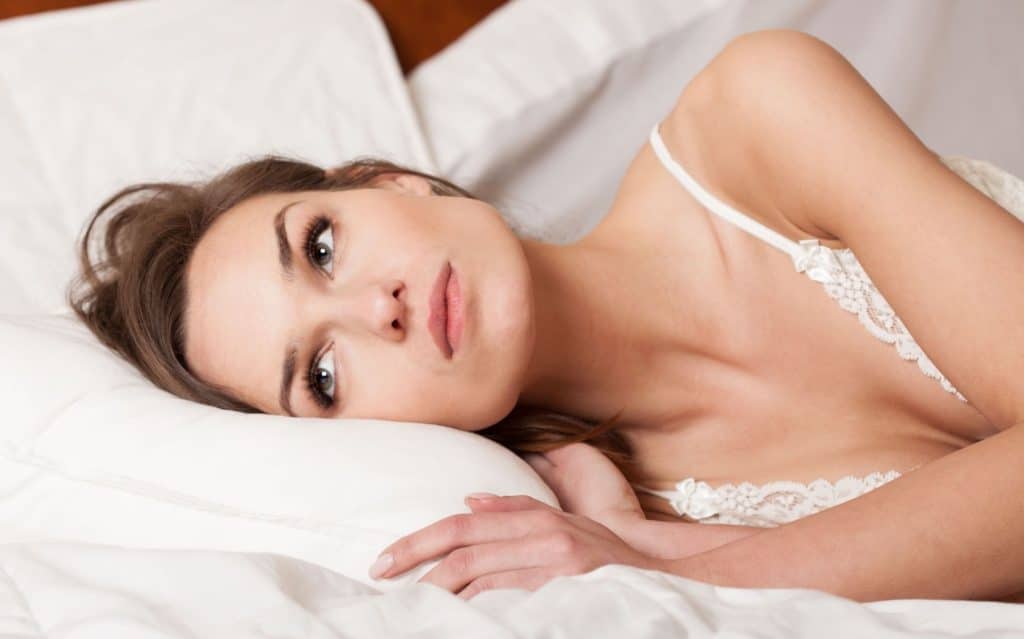
You get the idea. Sometimes it feels like you have 6 different ideas going at once.
The difference between the thoughts being due to ADHD vs anxiety is that they aren’t anxious thoughts. You just are thinking about… whatever.
5. ADHD: Sleep Variability
People with ADHD have greater variability in their sleep patterns. Apparently, the average person has a rather consistent sleep pattern (this seems like a completely foreign concept to me).
ADHDers have more night to night variability: timing for going to bed, when we fall asleep and wake up, our sleep duration, our sleep quality and night awakenings.
For someone with ADHD, having a good night’s sleep can be unpredictable.
6. ADHD: Sleep Anxiety
This unpredictability of a good night’s sleep can cause sleep anxiety. This is more of an anticipatory anxiety about going to sleep.
If you know you need to get your sleep because you have a presentation tomorrow, and you have had trouble falling asleep before…

Well, naturally you are going to be anxious about whether you can actually fall asleep when you really need to.
7. ADHD: Social Jet Lag
Social Jet Lag doesn’t involve travel, it is when you have differences in sleep/wake timing between work and free days.
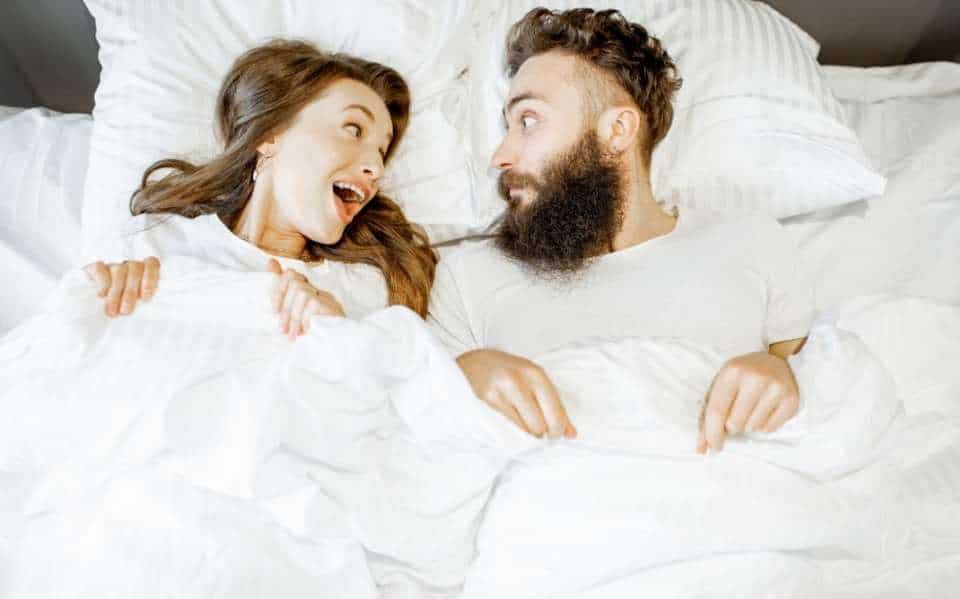
Classically this is when you stay up late on the weekend and have trouble getting back to your sleep schedule early in the week.
This is much worse for people with ADHD than the average person.
8. ADHD: Sleep Disordered Breathing
The term sleep-disordered breathing (SDB) includes a range of conditions from obstructive sleep apnea to primary snoring.
Sleep-disordered breathing is more common in people with ADHD and involves abnormal patterns of breathing or ventilation.
If you had a history of snoring or possible OSA during childhood, you are 2x more likely to have ADHD.
9. ADHD: Obstructive Sleep Apnea
Obstructive sleep apnea (OSA) involves partial or complete upper airway obstruction, leading to disrupted sleep.
While only OSA only occurs in 3% of the general population, 25-30% of people with ADHD have OSA!! That’s a tenfold difference!

The effects of OSA are not just being repeatedly awoken, it can also cause a lack of oxygen to the brain which causes stress/inflammation in the brain. Which is obviously not a good thing.
10. ADHD: Restless Leg Syndrome
Restless Leg Syndrome is when you have a discomfort in your legs and an irresistible urge to move them. It is worse at rest, the leg discomfort is relieved by moving them.
This is really bothersome in the evening or night. It may keep you from falling asleep, because you keep having to move your legs, or get up and walk around.
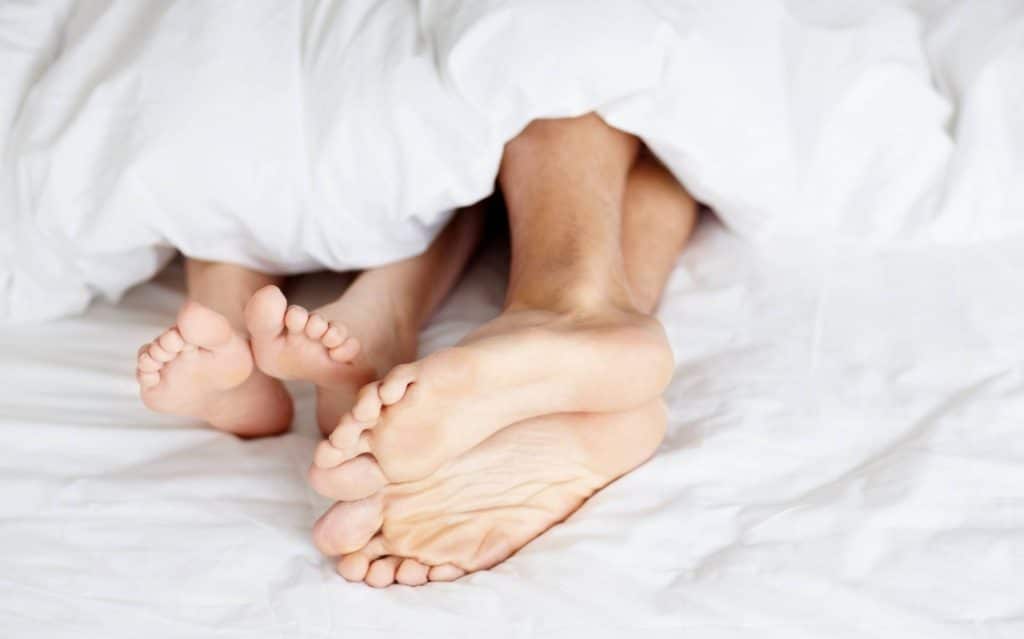
Restless Leg Syndrome is really common, about 10% of the US population has it. But up to 44% of people with ADHD have RLS or RLS-like symptoms!
Up to 26% of people who have RLS have ADHD or ADHD-traits (also called VAST).
New evidence suggests that women are twice as likely to be affected by RLS compared to men. With these statistics, I’m guessing there are tons of undiagnosed ADHD women with Restless Leg Syndrome out there.
Have you heard of Body Focused Repetitive Behaviors? This is when you can’t stop from skin or scalp picking or cheek biting.

These behaviors might have a link to Restless Leg Syndrome.
Read about ways of overcoming Body Focused Repetitive Behaviors.
11. ADHD: Periodic Limb Movement Disorder
Periodic limb movement disorder (PLMD) involves repetitive (usually every 20-40 seconds) twitching or kicking of either an upper or lower limb while sleeping.
Unlike restless leg syndrome, there is no uncomfortable sensation in the leg or arm. A person may not even know it is happening, but it leads to poor sleep and excessive daytime sleepiness.

Periodic limb movement disorder seems to be very prevalent in people with ADHD.
One study showed 64%(!) of ADHD children had PLSM (at least 5 movement events/hr) with 21% having more than 20 events/hr! The control group had zero movement events!
No wonder this causes ‘excessive daytime sleepiness’!!
Got freezing hands and feet along with insomnia? You might have Flammer Syndrome.
While not officially linked to ADHD, about 100 women on a Women with ADHD Facebook group commented on a post about cold hands and feet ‘Me too!’.
12. ADHD: Difficulty Falling Asleep
So now we get to classic features of insomnia.
Insomnia is characterized by difficulty falling or staying asleep, even when a person has the chance to do so.
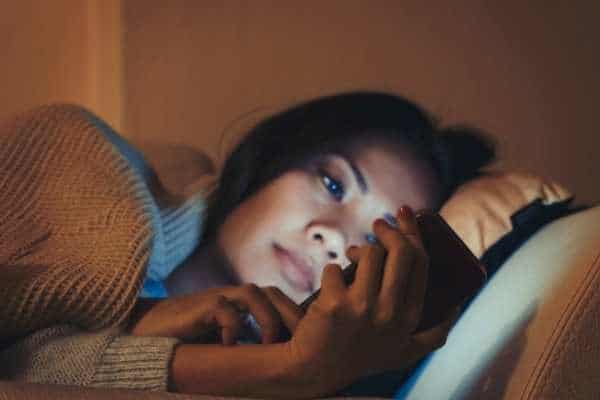
This is also be called ‘prolonged sleep onset’ in studies. No surprise that this is super common in people with ADHD, what with the racing mind, twitchy legs, and sleep anxiety.
13. ADHD: Difficulty Staying Asleep
This is the other half of classic insomnia, and it’s also a major issue. People with ADHD have more night awakenings.
In the periodic limb movement studies the children who had PLMS got 43 minutes less sleep per night!
One way to think of this: the hyperactivity of ADHD doesn’t stop when we go to sleep: it can be a 24 hour issue.
14. ADHD: Less Total Sleep Time
So, not surprising at all, ‘short sleep duration’ is noted in studies in people ADHD.
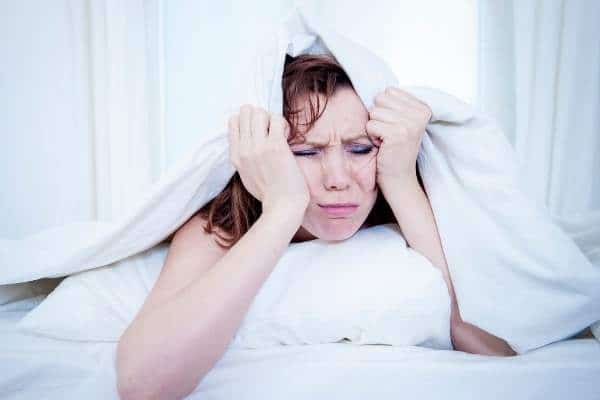
15. ADHD: Excessive Daytime Sleepiness
A significant percentage of adults with ADHD report excessive daytime sleepiness, as shown in multiple studies.
Adults with ADHD were much sleepier during attention tasks and they become sleepier as the task progressed in one study. This really shows how having poor sleep quality affects your day.
16. ADHD: Subclinical Narcolepsy
Narcolepsy is a more extreme version of excessive daytime sleepiness.

Narcolepsy is difficulty with maintaining continuous wake and sleep, with excessive daytime sleepiness (EDS) occurring alone or together with features of rapid eye movement (REM), sleep dissociation and disrupted nighttime sleep.
Adults diagnosed with narcolepsy were two times more likely to have had a childhood diagnosis of ADHD compared with controls.
The term ‘subclinical narcolepsy’ had been suggested for adults with ADHD who have excessive daytime sleepiness.
Are your sleep issues caused by ADHD or VAST?
After reading this list you may wonder if your sleep issues are related to ADHD or VAST (Variable Attention Stimulus Trait – a new term for people with ADHD traits).
And here is the crazy thing: lots of people with ADHD sleep much better when their ADHD is treated. Some people take naps right after taking a stimulant medication! Seriously!
Realizing that regulation of attention and alertness are main reasons for sleep and exhaustion means that simple daily techniques like Non-Sleep Deep Rest practices can make a huge difference. (Read about the best Non-Sleep Deep Rest options, and my experience using self-hypnosis.)
But you’d know if you had ADHD right? Well, actually you might not. Many people get diagnosed as adults, usually when their kids get diagnosed.
ADHD is poorly understood, it is thought of as a learning disorder, with an inability to pay attention. That is not what ADHD is.
We can pay attention, there is just a difference in the the way attention is regulated by the brain. In fact, ADHD traits managed well can lead to great success, particularly with entrepreneurship.

ADHD has nothing to do with intelligence, it is a difference in the way the brain regulates attention, emotion, and sleep. There are Nobel Prize winners, Pulitzer prize winners, judges, lawyers, doctors with ADHD.
The medical model of ADHD is based on a childhood presentation and doesn’t even include the emotional symptoms. So, the diagnosis of ADHD in women is often missed, although it is becoming more common now.
Being diagnosed can make a huge difference, often it is an A-Ha! moment, where so many things suddenly make sense.
What ADHD Looks Like in Women
Women with ADHD do not present like the stereotypical ‘hyperactive boy’, we internalize our symptoms more. This can look like depression, anxiety, or eating disorders.
Emotions are a huge part of ADHD but that is also not understood. We get diagnosed with depression, anxiety or borderline personality disorder. We can self medicate with alcohol or cannabis.
We can be deep thinkers, worriers and be easily distracted and have memory issues (mind fog). We can get overwhelmed at work or at home, wondering why everything seems so easy for everyone else.
Stress can make ADHD symptoms worse. We may have managed for years, but a new situation that exceeds our ability to cope leads to overwhelm and exhaustion.
Hormones can also cause ADHD symptoms to get worse. Often women will find they cannot manage as well just after pregnancy, or in peri-menopause or menopause. Some women wonder if they have early onset dementia with menopause – it can be that bad!
So if you think this might be you, welcome. You are not alone.
Because this is me too. I got diagnosed in my late 40s when i got ‘burnout’ from work. I was lucky to have a doctor who realized it was ADHD that was made worse by stress.
And I am really irritated that there isn’t good information for us, so I am sharing what I find from the research, and other women like us. Keep reading and see if you recognize yourself.
References
- Associations of sleep disturbance with ADHD: implications for treatment
- Intraindividual variability of sleep/wake patterns in adolescents with and without attention‐deficit/hyperactivity disorder
- Sleep disorders in patients with ADHD: impact and management challenges
- ADHD treatments, sleep, and sleep problems: complex associations
- The Association Between Insomnia and Sleep Duration in Adults With Attention-Deficit Hyperactivity Disorder: Results From a General Population Study
- Sleep in Adults with Attention Deficit Hyperactivity Disorder (ADHD) Before and During Treatment with Methylphenidate: A Controlled Polysomnographic Study
- Restless legs syndrome and attention-deficit/hyperactivity disorder: a review of the literature
- Unraveling the Mysteries of Restless Leg Syndrome
- Further studies on periodic limb movement disorder and restless legs syndrome in children with attention-deficit hyperactivity disorder
- The key role of daytime sleepiness in cognitive functioning of adults with attention deficit hyperactivity disorder
- Hypersomnia with ADHD: a possible subtype of narcolepsy type 2
- Sleep disturbances in adolescents with ADHD: A systematic review and framework for future research
- Sleep quality, chronotype and social jetlag differentially associate with symptoms of attention deficit hyperactivity disorder in adults
- DSM-5 Changes in Attention Deficit Hyperactivity Disorder and Autism Spectrum Disorder: Implications for Comorbid Sleep Issues
- Females with ADHD: An expert consensus statement taking a lifespan approach providing guidance for the identification and treatment of attention-deficit/ hyperactivity disorder in girls and women
